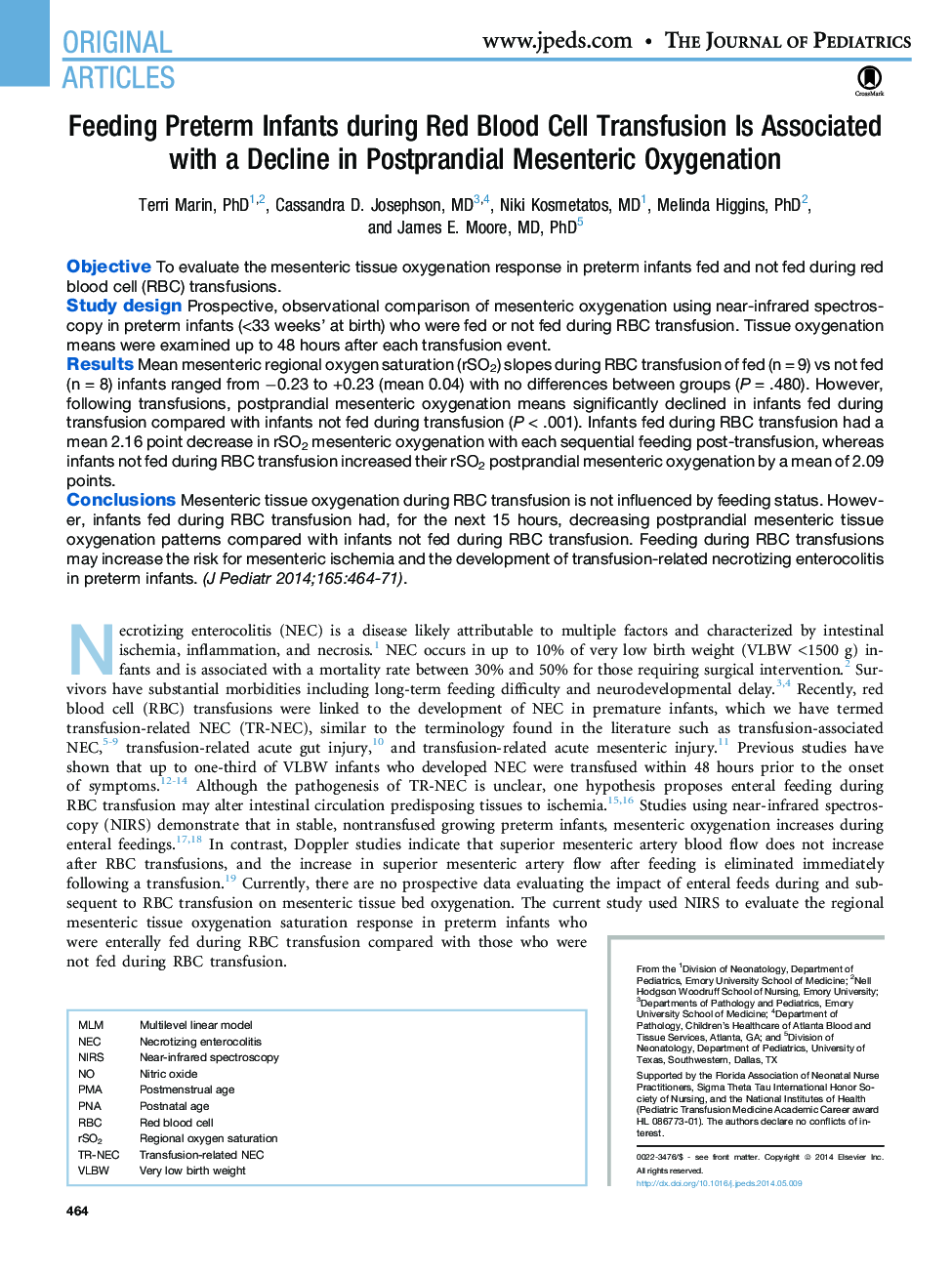| Article ID | Journal | Published Year | Pages | File Type |
|---|---|---|---|---|
| 6222251 | The Journal of Pediatrics | 2014 | 9 Pages |
ObjectiveTo evaluate the mesenteric tissue oxygenation response in preterm infants fed and not fed during red blood cell (RBC) transfusions.Study designProspective, observational comparison of mesenteric oxygenation using near-infrared spectroscopy in preterm infants (<33 weeks' at birth) who were fed or not fed during RBC transfusion. Tissue oxygenation means were examined up to 48 hours after each transfusion event.ResultsMean mesenteric regional oxygen saturation (rSO2) slopes during RBC transfusion of fed (n = 9) vs not fed (n = 8) infants ranged from â0.23 to +0.23 (mean 0.04) with no differences between groups (P = .480). However, following transfusions, postprandial mesenteric oxygenation means significantly declined in infants fed during transfusion compared with infants not fed during transfusion (P < .001). Infants fed during RBC transfusion had a mean 2.16 point decrease in rSO2 mesenteric oxygenation with each sequential feeding post-transfusion, whereas infants not fed during RBC transfusion increased their rSO2 postprandial mesenteric oxygenation by a mean of 2.09 points.ConclusionsMesenteric tissue oxygenation during RBC transfusion is not influenced by feeding status. However, infants fed during RBC transfusion had, for the next 15 hours, decreasing postprandial mesenteric tissue oxygenation patterns compared with infants not fed during RBC transfusion. Feeding during RBC transfusions may increase the risk for mesenteric ischemia and the development of transfusion-related necrotizing enterocolitis in preterm infants.
